
IT’S the new year, and the countdown to the next general election has begun, expected within the next 100 days. To perform well at the impending elections, what new year resolutions should our political parties make? In part one of a two-part column, we’ll examine what kind of resolutions the main parties in the incumbent Barisan Nasional (BN) need to fulfill in order to survive at the next polls.
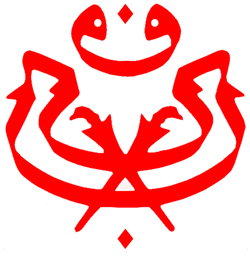
Umno
Challenges
Umno is a prisoner of its past success. Umno-BN has probably enjoyed at least half of Malaysian voters’ support throughout most of Malaysia’s history. Its success has been based on three pillars: Malay nationalism, the fear of ethnic violence (or in Hokkien, kiasi, which literally means “afraid of dying”) and patronage.
Malay nationalism has thus far secured the majority of Malay Malaysian votes. Kiasi secured at least 30% of non-Malay support after 1969. And patronage oiled BN’s machinery in both Malay and non-Malay constituencies. Up until the 2008 elections, this unholy trinity ensured Umno-BN’s reign despite corruption, extravagance, mismanagement or simply, resistance to change.
But these pillars have eroded and fallen apart after 2008. Rampant corruption due to patronage has alienated voters of all communal backgrounds. Patronage has also widened inequality amongst the Malay-Muslims, undermining Umno’s supposed championing of Malay nationalism. The non-occurrence of ethnic riots in Pakatan Rakyat (PR) states after 2008, coupled with inter-communal solidarity in the Bersih 2.0 and subsequent rallies, have convinced non-Malay minorities that 13 May will not automatically recur just because Umno experiences losses.
PR states have also shown financial prudence and support for citizens including Malay Malaysians.
Suggested resolutions
- Stop its self-hypnosis that BN will surely win the next polls and even regain two-third parliamentary majority. Come up with real strategies to win over disenchanted voters.
- Reduce dependence on the three pillars of racism, threat of ethnic violence and patronage. This will be good for Umno’s real renewal and transformation into a democratic party and may buy Umno time before losing elections for the first time. The Kuomintang (KMT)’s rule in Taiwan was extended by eight years after it introduced the first direct presidential elections.
- Embark on electoral reform and decentralisation as a strategic move in case BN loses power. The current system heavily marginalises opposition parties. Taiwan’s KMT and Mexico’s Institutional Revolutionary Party (PRI) both ran electoral one-party states like Malaysia before being voted out. They returned to power after being in opposition for only eight years. Without reform, it is doubtful that Umno-BN would survive in the political wilderness for eight, much less four years.
The question is: will Umno president and Malaysian premier Datuk Seri Najib Razak have the political will to do this? His late father built the electoral one-party state to revitalise Umno. Will Najib dare to dismantle it to achieve the same objective?

Challenges
MCA has worked very hard to portray DAP as a PAS stooge. Unfortunately, this strategy is not working since many Chinese Malaysian voters can read Utusan Malaysia and Berita Harian which in turn says PAS is DAP’s stooge. To add insult to injury, Tun Dr Mahathir Mohamad reminded Malaysians that MCA did not oppose his 2001 announcement that Malaysia was an Islamic state, hence its objection to Islamisation is merely lip service.
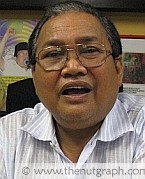
Worse, the likes of Datuk Ibrahim Ali and Utusan Malaysia, seen as Umno agents, make PAS look more acceptable by the day. To many who participated in the Bersih rallies and Green Walk, PAS simply means Unit Amal — the party’s security volunteers who conduct crowd management and protect citizens from police and thugs.
Suggested resolutions
- MCA should embrace Bersih’s demands for electoral reform and address environmental concerns. If MCA can persuade Umno to genuinely clean up the elections; stop the Lynas rare earth plant; stop the use of cyanide at a gold mine in Raub; stop the demolition of Pengerang’s fishing communities; and stop the MRT land acquisition at Jalan Sultan in Kuala Lumpur, it may stand a better chance at retaining some of its seats.
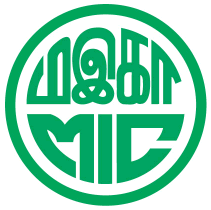
MIC
Challenges
While it is generally accepted that Indian Malaysian voters have moderately swung back to the BN after their exodus in 2008, MIC may not want to celebrate just yet. For one, no single constituency — parliamentary or state — has an Indian majority that will ensure a convincing win.
More importantly, Indian Malaysians, a composite term including very heterogenous subgroups, are the most marginalised ethnic community in Malaysia, after indigenous groups. They are over-represented in petty crimes, and as victims of extra-judicial killings and police violence.
Suggested resolutions
- If MIC believes in protecting Indian Malaysian interests, it should fight for the establishment of the Independent Police Complaints and Misconduct Commission to seriously investigate allegations of police violence and misconduct.
- It should make a genuine effort to combat poverty and end the chronic marginalisation of Tamil schools.
But with MIC heavily dependent on Umno votes, will it dare to demand structural reforms which are universal or class-based, instead of protesting an apartment close to Batu Caves after first issuing a planning permit for it?

Gerakan
Challenges
The greatest challenge is to recover its regional base in Penang, without which it will not have the resources to expand. Standing in the way is the fear, especially amongst Chinese Penang voters, of an Umno-dominated state government. Former Chief Minister (CM) Tan Sri Dr Koh Tsu Koon was generally perceived as a weak leader during his 18-year tenure, with real power wielded by his Umno deputy.
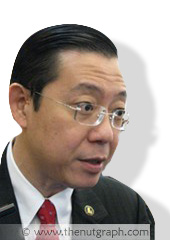 As a small swing in votes may cause a huge shift in seats thanks to our first-past-the-post electoral system, many voters may reject Gerakan candidates regardless of their qualities just to make sure the popular CM Lim Guan Eng stays in power. Hence, Gerakan may get wiped out again in Penang in 2013, probably sending it straight into oblivion.
As a small swing in votes may cause a huge shift in seats thanks to our first-past-the-post electoral system, many voters may reject Gerakan candidates regardless of their qualities just to make sure the popular CM Lim Guan Eng stays in power. Hence, Gerakan may get wiped out again in Penang in 2013, probably sending it straight into oblivion.
Suggested resolutions
- To prevent its own demise, Gerakan’s answer lies in local elections. As municipalities have less powers and more importantly, Umno has less chance to dominate the councils, the median Penang voter may be more willing to vote in a few Gerakan councillors to check on PR. This would provide Gerakan politicians in Penang a platform to survive even if they lose all federal and state contests.

- Will the new Penang Gerakan chief Teng Chang Yeow, who is also Penang BN chief, have the wisdom and guts to push Putrajaya to say “Yes” to local elections? Bound by their election promise, the Penang government under PR has already passed state law to revive local elections. The ball is now in BN’s and Teng’s court.
PBB
Challenges

Holding 15 parliamentary seats, and 35 out of 71 state seats, makes PBB the second strongest BN party after Umno. While the next Sarawak state elections can be scheduled as late as July 2016, the 13th general election poses an important question to PBB: Will there be a change in Putrajaya — will PR replace BN? Or, if BN stays on, will Tan Sri Muhyiddin Yassin replace Prime Minister Najib? The ultimate question is, whoever controls Putrajaya, will Sarawak CM Tan Sri Abdul Taib Mahmud be allowed to continue his rule, now into its third decade?
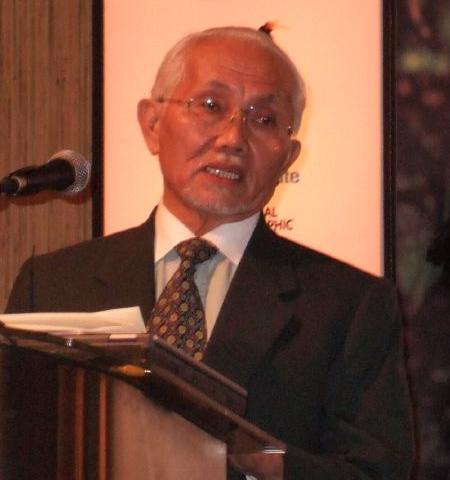
Taib Mahmud has no doubt been the largest factor for PBB’s growing dominance in the past 32 years. But he faces allegations of turning the ruling PBB into a kleptocracy. By some reports, Sarawak has lost 90% of its virgin forest and despite its natural resources, is the second poorest state in Malaysia, after Sabah.
The big question will be whether Taib will seek a deal with PR if there is a regime change at the federal level.
Suggested resolutions
- Whatever the GE13 outcome, PBB leaders and members should really think about a future without Taib. The ending of Hosni Mubarak’s National Democratic Party after he was ousted as president should serve as a good lesson.
In the next publication of Uncommon Sense, we’ll take a look at PR parties and what kind of resolutions they need to make for the new year. ![]()
Wong Chin Huat is a political scientist by training and was a journalism lecturer prior to joining the Penang Institute, a Penang government think tank. If readers have questions and issues they would like Wong to respond to, they are welcome to e-mail editor@thenutgraph.com for our consideration.
[related-posts]


Kong Kek Kuat says
I know it´s quite late; Happy New Year to all you TNG readers and TNG staff, anyways!
But, wow, what a year 2013 is going to be! Suddenly, things are looking rather brighter than 2012 and UMNO and its compliant woof-woofs, […]
BTW, as far as I know, PBB (and an exclusive cohort of hoarders) is indeed thinking… and thinking… and thinking… about a future without Taib. The problem is, everyone must agree to the next leader.